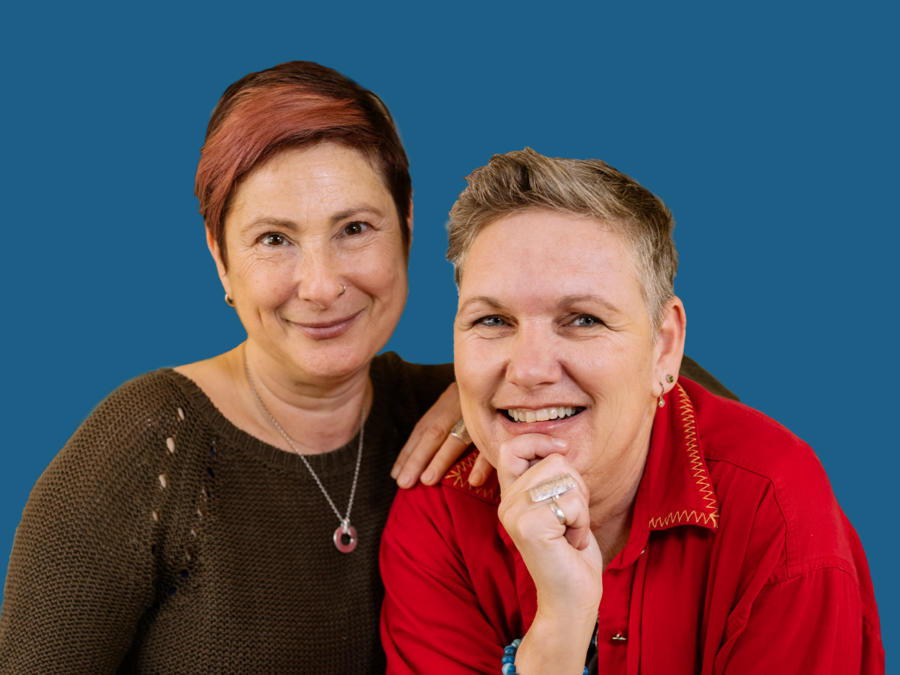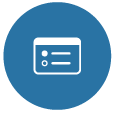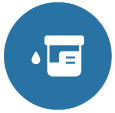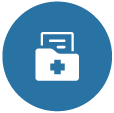Joining Connect
You can sign up for Connect through MyConnect, where you can complete the online informed consent process, agree to share your electronic health records, and create a profile. Then, the Connect team at your health care system will check that you are eligible to join the study.
To sign up for Connect:
1. Visit MyConnect
You can access MyConnect.cancer.gov by clicking the "Join Now" button at the top or bottom of this page.
MyConnect is supported on these internet browsers: Google Chrome, Safari, Microsoft Edge, and Firefox.
2. Complete the Online Informed Consent Process
The online informed consent process will tell you what it means to take part in Connect and how we will protect your privacy. We will guide you through a series of web pages about the study. Please read the full informed consent form. Connect Support Center staff can answer any questions you have about the study before you decide to join.
3. Agree to Share Your Electronic Health Records (EHRs)
These records include information about your past, current, or future health status, test results, medical procedures, images (such as x-rays), and medicines you take.
Sharing your health records gives researchers a full picture of your health. Seeing the full picture can help us learn what may make some people more likely to get cancer than others.
Please read the full HIPAA Authorization form. Signing this form will allow Connect to access your health records. Connect Support Center staff can answer any questions about the study and sharing your health records before you decide to join.
4. Create a Profile
We will ask you to fill in information like your name, date of birth, address, and how you prefer that we contact you.
The Connect team at your health care system will use this information to check that you are eligible for the study. We will contact you within a few business days to let you know if you are able to join Connect.
Your privacy is important to us. We follow security rules to protect your information.
Joining Connect will not affect your health care or health benefits. If you join, you can stop at any time. There is no monetary cost tied to taking part in Connect.
After You Join
If you join Connect, we will ask you to complete online surveys and donate blood, urine, and saliva samples (biological specimens).
We will share some results from your surveys and samples with you privately, if you choose to receive them. We will not add information from the study to your health record or share information with your health care providers, but you are free to share any results you receive with your health care providers and anyone else. We will also share updates about Connect and group level results from all the people taking part in the study.
Answer Online Surveys
Connect surveys will ask about your health, habits, family, home, and work. We will send you surveys to complete when you join the study and then a few times each year. The first survey can take one to two hours to complete. This survey is broken into sections, so you can pause and return to complete it at any time. Most follow up surveys will take 20 to 30 minutes to complete. Surveys can be completed on any computer, tablet, or smartphone that connects to the internet. You can skip any questions that you are not comfortable answering.
Donate Samples
We will ask you to donate blood, urine, and saliva samples (biological specimens) when you join the study and then every two or three years after.
Samples are like time capsules of information about your current health status. We collect samples throughout your time in Connect to study how your health may change. Studying these samples is important to understanding how cancer and other health outcomes may develop.
When you donate each sample, we will ask you to answer a short survey about your recent actions (like medicines you took or foods you ate).
Some samples may be collected where you get your health care. Others are easy for you to collect at home. There is no monetary cost tied to donating samples. We will cover the cost of postage for mailing samples and parking validation for donating samples in person.
After you complete the first survey and donate your first blood sample, you will receive $25 in cash or as a gift card, depending on your health care system.
Long-term Study Activities
It takes time to understand the causes of cancer. Changes in your life, habits, behaviors, and the things we can measure in your samples give us important information that we can use to understand how cancer and other diseases may develop. If you join, we hope you will be an active part of Connect for years to come.
For as long as you are part of Connect, we will ask you to:
- Update your information and answer new online surveys at least once a year.
- Donate new blood, urine, and saliva samples every two to three years.
We may invite you to take part in other study activities. These are optional. We may provide payment for some of these other activities. You can say yes or no to these activities and stay in Connect.
These activities could include:
- Donating other samples (like toenails or hair) or samples from your home (like dust or dryer lint).
- Having physical measurements (like height, weight, and blood pressure) taken at a health clinic or at home.
- Sharing information from wearable health trackers or mobile phone apps. These could measure physical activity, diet, sleep, or things about where you live.
What Connect Will Do
If you join Connect, we will collect information from your health care system and other sources to better understand your health.
Examples of other sources include:
- Cancer and other health registries
- Environmental databases that have information about air quality in areas where you live and work
- Other databases, like the census, that have information about your neighborhood
Our team will collect this information. It will not take extra effort on your part.
To collect information from some of these sources, we will use your name, address, and social security number (if you shared it) to check that we have the right information for you. We protect your privacy every time we collect information about you from other sources.
If your regular health care visits include collection of certain samples, we may coordinate with your health care system to collect any unused portions. These could include:
- Tissue from medical procedures, such as a biopsy or surgery
- Stool, often used for colon cancer screening
- Samples from HPV and Pap smears, often used for cervical cancer screening
- Blood from blood tests, such as cholesterol checks
- Urine from tests to check for some infections
How Your Information May Help Prevent Cancer
Your health information and samples can help researchers better understand cancer and its causes. We value the time, effort, and information you choose to share with Connect, and are committed to protecting your privacy every step of the way.
Researchers around the world may use your information (without identifying you) to better understand the causes of cancer and other health problems.
Health information, survey answers, and samples can help researchers answer important questions. Researchers can compare the habits, diet, and health issues of people who get cancer to those who do not. Your blood, urine, and other samples help researchers understand what is happening in your body. For example, we may measure cholesterol or other things that affect health, like vitamin levels or pollution from the environment. This information can help us learn more about the causes of cancer and how to prevent it.
We will update you about study progress and what we learn over time.
Still have questions about Connect? Contact us.




